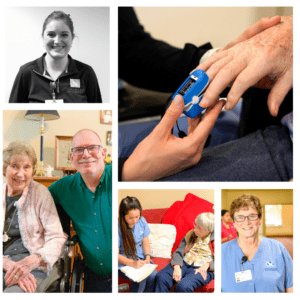Speech therapy is a form of therapy that focuses on helping individuals improve their ability to communicate effectively. Speech therapists typically work with individuals who have difficulties with speech, language, voice, fluency, or swallowing.
The goal of speech therapy is to help individuals develop the skills necessary to communicate effectively in all aspects of their lives. Depending on the individual\’s needs, speech therapy may include a broad range of activities.
What are the common types of speech therapy, and how do they work?
Articulation Therapy
Articulation therapy focuses on helping individuals improve their ability to produce speech sounds correctly and clearly. Articulation refers to the physical movements involved in producing speech sounds, such as movements of the tongue, lips, and jaw.
Articulation therapy is typically used to treat individuals who have difficulty producing specific speech sounds. For example, a child who has difficulty producing the \”r\” sound may receive articulation therapy to help them learn how to produce the sound correctly.
During articulation therapy, a speech-language pathologist (SLP) typically works with the individual to identify which speech sounds they are having difficulty producing. The SLP then uses a variety of techniques and exercises to help the individual learn how to produce the sounds correctly.
Language Therapy
Language therapy focuses on helping individuals improve their ability to understand and use language. Language refers to the system of communication that includes vocabulary, grammar, and sentence structure.
Language therapy is typically used to treat individuals who have difficulties with language, such as those with developmental language disorders, acquired language disorders (e.g., following a stroke or brain injury), or language delays.
During language therapy, a speech-language pathologist works with the individual to identify which aspects of language they are having difficulty with. The SLP then uses a variety of techniques and exercises to help the individual improve their language skills.
Voice therapy
Voice therapy focuses on improving the quality, clarity, and strength of an individual\’s voice. It is typically used to treat individuals who have voice disorders, such as hoarseness, breathiness, vocal fatigue, or loss of voice.
During voice therapy, a speech-language pathologist works with the individual to identify the underlying cause of their voice disorder. This may involve a physical examination of the individual\’s vocal cords or other structures involved in voice production.
The SLP then uses a variety of techniques and exercises to help the individual improve their voice quality
Fluency Therapy
Fluency therapy focuses on improving an individual\’s fluency and reducing disfluencies in speech. It is typically used to treat individuals who have fluency disorders, such as stuttering or cluttering.
During fluency therapy, a speech-language pathologist works with the individual to identify the underlying causes of their fluency disorder and develops a treatment plan tailored to their specific needs. Fluency therapy commonly includes a combination of techniques and exercises.
Swallowing Therapy
Swallowing therapy focuses on improving an individual\’s ability to swallow safely and effectively. It is typically used to treat individuals who have swallowing disorders, also known as dysphagia, which can result from a variety of medical conditions such as stroke, neurological disorders, head and neck cancer, or injuries.
During swallowing therapy, a speech-language pathologist evaluates the individual\’s swallowing abilities through clinical observation, endoscopic evaluation, and/or imaging studies. The SLP then develops a treatment plan tailored to the individual\’s specific needs.Charlin Hospice Services
Speech therapists may work with individuals of all ages, from infants to seniors. They may work in a variety of settings, including schools, hospitals, clinics, and private practices. Speech therapy can have a significant impact on an individual\’s ability to communicate and participate fully in all aspects of life.
At Charlin Health Services, we pride ourselves on honor, integrity, excellence, compassion, dignity, and trust. Our Interdisciplinary Hospice Team functions as a family unit to assist each patient and their loved ones during this journey of life. Each member of any Charlin Hospice team can be reached anytime seven days a week.
If you have any needs or questions about hospice care, health services, or other medical needs, please send us an email or give us a call.



